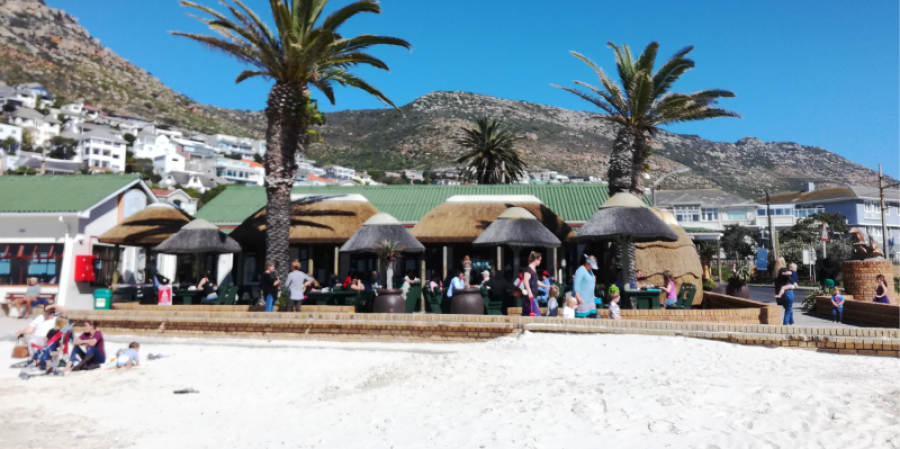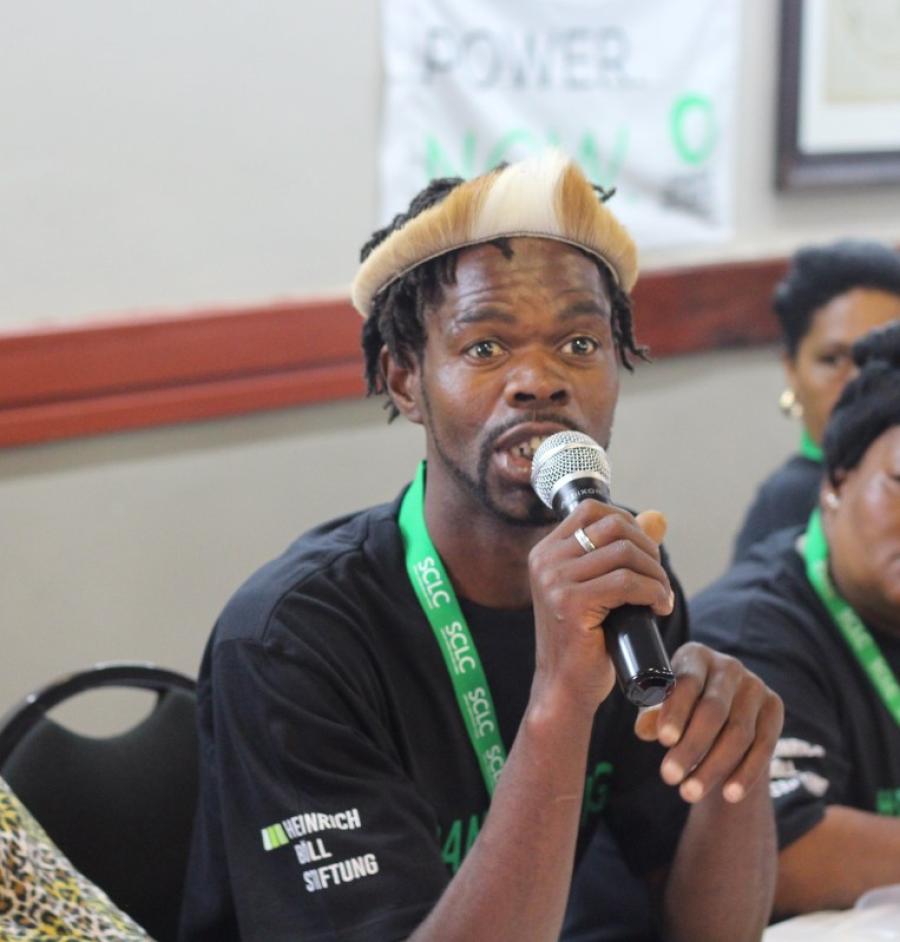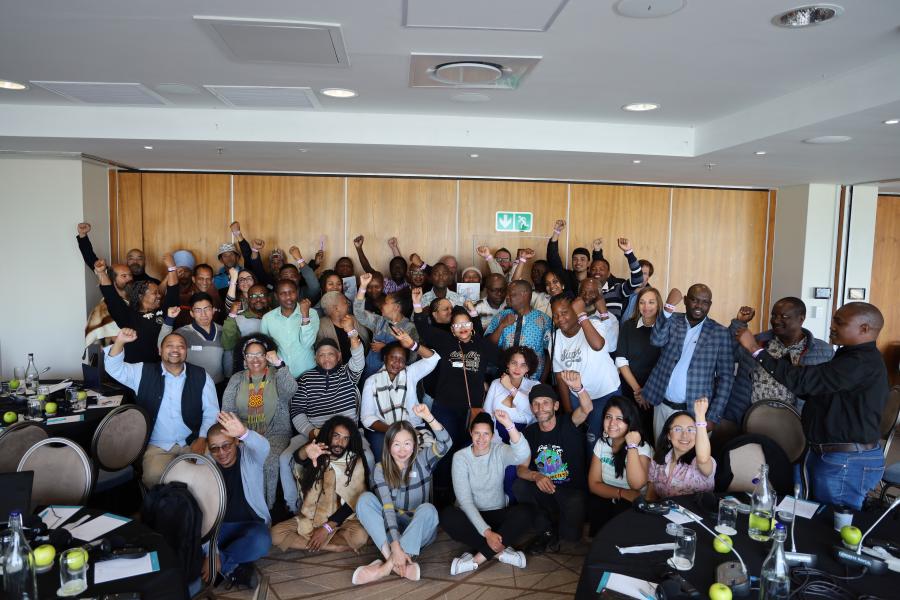Recent attempts by the South African government to relocate Blacks have met with strong protest from those targeted for removal and their supporters.
Last December, 2,000 Bakwena, residing in Magopa, were given seven days to vacate their village and move to a new homeland. After seven days, government officials gave the order to bulldoze village churches and schools.
On 11 January 1984, 300 families at Badplaas refused to leave their homes in the Eastern Transvaal, 200 miles east of Johannesburg. These families, who have resided in Badplaas since the end of the last century, have not yet been forcibly removed; the South African government, it is thought, may be fearful of negative publicity.
These are but two recent illustrations of a process which has already affected over three million Blacks in South Africa. "Black spots" - land which Blacks occupy illegally, according to the South African government, in White areas - are targeted for elimination. As of 5 April 1983, the government had identified 75 "Black spots" which remained to be eliminated.
Until recently. Blacks in South Africa were prohibited from owning land outside the ten tribal homelands set aside for their use. By South African law, every black South African is a "citizen" of a reserve, regardless of whether he or she actually resides there.
Currently Whites, who make up 17% of South Africa's population, claim 86% of the land, while Blacks - 76% of the population - have rights to only 14%. For the most part, that 14% is comprised of lands which contain no known mineral deposits. Because of the poverty, chronic unemployment and overcrowding in most homelands, more than half of Black South Africans still live in "White areas." Blacks, in fact, are a majority even in White areas.
Controlling illegal residency by Blacks is a daily battle for South Africa's ruling White minority. In addition to forcibly relocating villagers, the government conducts mass arrests of Black migrants seeking work in urban areas. Since 1948, there have been 12 million arrests of Blacks for violations of pass laws - laws which prohibit Blacks' entry into White areas without official permission. About 33,000, or one-third of the people presently in South African prisons, are pass law offenders. A common official defense for these arrests is that the government is trying to protect the livelihood of urban Blacks and Coloreds with legal tenure. Yet this number of arrests does not deter Blacks from continuing to escape the harsh conditions in homelands. Frequently, a Black's standard of living is higher in jail than on native reserves.
Because of relocation programs, population on the reserves increased 57% from 1960 to 1970, in spite of infant mortality rates as high as 200 per 1,000 live births in some resettlement areas. If all South Sotho people were jammed into Qwa-Qwa as intended by government planners, the average density would be 7,113 persons per square mile. In Ciskei - the homeland for Xhosa - for instance, unemployment ranges from 25% to 50%.
Food production in all homelands has been declining for decades. More than half of all food is imported. Per capita income inside homelands is only 10% of the South African average, and no tribal reserve produces even 1% of South Africa's gross domestic product. For many, illegal migration to urban areas is an alternative to starvation.
Relocation of "squatters" (so labelled even though many have lived their whole lives on the same plot of ground) is a brutal process. Blacks sometimes even have to pay for their own transportation to the homelands; prices can run as high as US$250 per truckload.
Settlements are usually ill-prepared to support even subsistence living: soil is often of marginal and/or declining fertility or unsuited to the crops previously cultivated by new residents. Rarely do camps offer anything but the most basic infrastructure - some dusty roads, a few water taps, small corrugated iron cubicles which serve as housing, and rows of metal toilets. Additional infrastructure must be built by new residents, although the income of most families is halved as a result of relocation - a condition which precipitates their hurried migration to White areas.
Assignment to certain homelands instantly cancels Blacks' South African citizenship. Four tribal "homelands" - Bophuthatswana, Ciskei, the Transkei, and the Verda - have been declared "independent" by the South African government. Although the independence of these "homelands" has not been internationally recognized. Blacks assigned to these reserves automatically lose South African citizenship. As fewer than 15 out of every 100 new Black migrants are able to find work in the reserves, their economic independence is invariably stillborn. Blacks were not allowed to vote on the issue of retaining South African citizenship, or any other issue affecting their lives, for that matter. Yet a 1980 survey indicated that 90% of Xhosa preferred a multiracial, single South African government to an independent homeland.
"Homelands" are assigned to groups strictly on the basis of ethnicity, a criterion which ignores cultural and historical differences within the same "tribe." Most residents of "Welcome Wood" - a resettlement camp in the Ciskei - for instance, don't speak Xhosa but Afrikaans, as they were moved from a White town some 450 miles away. They were nevertheless assigned to an area for Xhosa speakers.
The government does not want to eliminate all Blacks from White urban areas. Urban areas depend upon cheap Black labor even though Whites fear the presence of too many Blacks in the cities. Until last year. Blacks were not granted permanent resident status in towns. Last May, however, a South African appeals court ruled that migrant workers who had held jobs for 10 consecutive years with one employer or for 15 years with more than one employer were entitled to permanent residence in Black townships (communities designated for Black migrants in White areas). Furthermore, officials have decided to sell government housing to Blacks at discounts of up to 40%. Only those born in urban areas will be allowed to purchase homes, however.
Tens of thousands of Blacks have qualified for permanent residency in urban areas as a result of this recent ruling. Many Whites are unhappy about the court decision and government bureaucracy has been slow to implement it. Moreover, the ruling affects mainly older Blacks, those with ten or more years of work experience, making it difficult for many new Black immigrants to find continuous employment. In the meantime, little will change for Blacks in rural areas. They will undoubtedly continue to be the objects of relocation schemes, consigned to languishing homelands. Thus, the primary effect of the ruling might well be the creation of a small, older, relatively advantaged Black labor sector and the decline of economic opportunity for the majority of rural Blacks. The government hopes, perhaps, that this ruling will quell the increasingly strident demands of Black, long-term urban workers to permanent residency and further factionalize the Black worker movement by introducing competition between legal urban workers and rural Blacks.
The enduring South African question - how long a small White minority can continue to engineer a vast Black majority, increasingly omnipresent in economic centers, remains unresolved. Some observers think that Whites will soon lose control unless they move to become more self-sufficient.
Immediate assistance to Blacks scheduled for relocation lies with a small core of liberal South African assistance organizations and advocates for Black causes. These include Black Sash, the South African Council of Churches, Action to Stop Eviction, the Association for Rural Advancement, Actstop, and the Legal Resources Center. The ability of these groups to publicize forced eviction and communicate with anti-apartheid groups overseas can, at least temporarily, impede the enforcement of South African inequity.
Ethnic Groups According to Homeland
Homeland Group
Bophuthatswana Tswana
Ciskei Xhosa
Transkei Xhosa
Venda Sotho
Gazankulu Swazi
Kangwane Swazi
Kwazulu Zulu
Lebowa North Sotho
Qwa-Qwa South Sotho
KwaNdebele North Sotho
Article copyright Cultural Survival, Inc.



